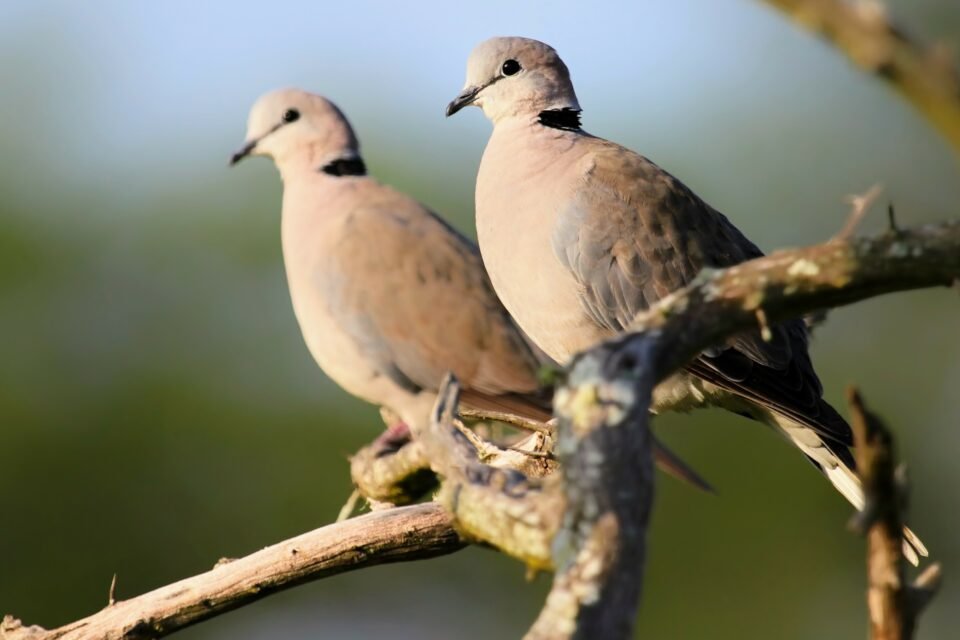What kind of Britain do we want to pass on? (5/5)
There are only 2,100 breeding pairs of turtle doves left in Great Britain. The largest population is sheltering at the Knepp Estate rewilding project. We need far more connected wild pockets to support their recovery.
Biodiversity in Great Britain is unequivocally in a precarious & worsening state. But we already have the many solutions we need to fix it, of which rewilding plays a considerable part. Despite some piecemeal changes, proportional action and the necessary mind-shift to kick-start recovery is still sorely lacking. If we put the calculating side of our brains aside for a moment and forget the rational & economic reasons for protecting biodiversity, just consider for a moment what kind of Earth you want to leave for your grandchildren. Is it a society which continues to recklessly damage the life-support systems of this planetary spaceship we call home? Do we want to destine turtle doves, hares, wolves and hedgehogs to the annals of history, their ghosts haunting our children’s stories? Or can we imagine a different future by defining ourselves as the generation of recovery? A 2nd enlightenment perhaps, only this time using understanding to draw us closer to nature, rather than to distance ourselves from it. That future is eminently more hopeful, and one that we can and must bring to life.
“More than 40% of Gen Z and Millennials have changed jobs or sectors due to climate concerns, or plan to do so in the future.”
If you were to compare the history of humanity with the span of a human life, it would be reasonable to say that we’re stuck in a period of teenage arrested development. Born in the plains of Africa, we spent our first few years with a childlike curiosity and connection with the world around us, inherently knowing that we are part of nature. As we grew we gained self-awareness, comparable to the cognitive & agricultural revolutions, at which point we began to alter the landscape around us, much like a child begins to interact and play with its surroundings. Since then, we’ve grown into boisterous and inconsiderate teenagers, flexing our newly found power and independence with almost total disregard for the disastrous consequences we can have. We’re speeding in our Vauxhall Corsa at 2am, driving back from a house party, congratulating ourselves on duping the Co-op server with our fake ID’s, drill music blaring. At some level we’re aware of the danger we are in, but no one wants the party to end, and so on we accelerate, willingly oblivious. Of course this recipe for disaster would be shut down by any adult in their right mind, but we are not listening to the more responsible voice in our heads, warning us of the danger we’re posing to ourselves and the world around us. With over a quarter of a century of yearly COPs, we are having increasing moments of clarity, glimpsing a flash of the true danger we face, but instead of pulling over we’ve decided that turning the music down will suffice.
It is time for us to move past this self-destructive phase and embrace a more sustainable and responsible era. Empowered, yet leveraging our power with purposeful restraint, aware of our potential for destruction and ready to embrace a more balanced and healthy life. It is time that we recognise our power for destruction and own the damage we have done. Time that humanity left its prolonged period of stunted adolescence and became the self-aware species required of us.
What should business leaders do?
Fortunately, change is on the wind and in particular the business landscape is shifting rapidly. Driven in part by consumer demand, part employee push, more and more businesses are developing environmental strategies that promote nature positivity. In fact, environmental strategy has become a business imperative to attract and retain talent. Research by Deloitte recently found that 40% of Gen Z & Millennials in GB (born 1983-2004) will consider changing jobs if their employer doesn’t have a positive impact on the environment.[1]
Furthermore, research led by American Express in 2022 found that 65% of consumers factor environmental impact into their purchase decision. [2] Business leaders therefore need to engage with the environmental crises to remain competitive, and rewilding can provide a tangible, transparent and local way to have a positive impact.
If you’re interested in learning how Wilderkind can enable you to positively impact your local environment, whilst meaningfully engaging your employees and customers with your nature recovery journey, please do reach out.

